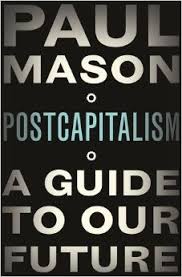Narrated by Edward Dalmas
The world is a big giant mess, I already knew this. It's why I picked it up.
I've said it before, with a lot of these books they are heavy on problems and light on solutions. Heinberg simply made me feel like everything was hopeless and I just wanted to give up.
But as the eternal optimist, Peter Diamandis, often says - "The world's biggest problems are the world's biggest market opportunities." Keep that in mind.
A book like Peak Everything will shine the light on the problems. It will be up to you to decide which ones you'd like to tackle and to go out to find the solutions yourself.
To be fair, Heinberg does have some solutions, but they mostly revolve about returning to an agrarian life. Who knows, maybe he's right.
Do I recommend it? Sure. Why not? Just be warned that it's a very one-sided read.
Richard Heinberg's website - https://richardheinberg.com/
 |
| Richard Heinberg |














